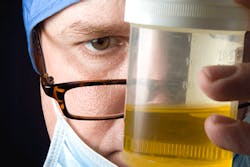It’s Getting Harder to Find Someone Who Can Pass a Drug Test
I am really fortunate to spend a lot of my time with business leaders around the world.
Whether it is in an Executive MBA program, a corporate training session, or an interview for a new book, I have the distinct pleasure of learning from some very sharp people.
Over the years, an ever-larger number of folks tell me that they face a tremendous challenge in hiring and keeping good employees. The reasons are many, and vary widely across industries, except for one: illicit drug use.
When we're talking in the office, the subject is rarely discussed. However, it becomes a regular topic of conversation in more relaxed settings. And, it seems to be getting worse.
For current workers, according to the annual Quest Diagnostics Drug Testing Index published last week, illicit drug use continues to rise, resulting in the highest drug test positivity rates in the last 12 years. The nationwide survey of more than 10 million workforce drug test results revealed:
- Positive cocaine drug test results increased for a 4th straight year, resulting in a 12% increase in the general U.S. workforce in 2016.
- Positive marijuana drug test results also increased among all three testing specimens (oral fluid, hair and urine). In Colorado and Washington (the first states to legalize recreational marijuana), positive marijuana test results increased 11% and 9% respectively, while the overall nationwide marijuana positivity rate increased 4%.
- Similarly, since 2015, positive test results for amphetamines (including methamphetamines) increased by more than 8%. Positive test results for methamphetamines, in particular, increased 64% since 2012.
- On a more “positive note”, heroin detection remained steady after four years of increases, while prescription opiate positivity declined slightly.
While these numbers focus on current workers, the problem can get exacerbated when trying to find new employees.
My friends in the building trades, transportation, and energy sectors complain how expensive recruiting efforts are often failures because prospective applicants simply cannot pass their initial drug test- or will refuse to even try.
Recently, one company that was looking to hire several hundred workers on a new pipeline construction project spent weeks advertising entry-level positions which averaged $22 per hour + full benefits.
After distributing thousands of applications on-line and at in-person events, less than 30 people were eventually hired. It seemed the extensive drug testing that was part of the initial interview process kept folks away from pursuing the next step…
As the U.S. economy reaches levels of full employment, drug testing and everything around it will make finding, hiring and keeping good employees even tougher.
About the Author
Andrew R. Thomas
Bestselling business author & associate professor of marketing and international business
Andrew R. Thomas' most recent book is The Canal of Panama and Globalization: Growth and Challenges in the 21st Century (2022). He is an associate professor of marketing and international business at the University of Akron.
A successful global entrepreneur, Dr. Thomas was a principal in the first firm to ever export motor vehicles from China. He has traveled to and conducted business in 120 countries on all seven continents.
